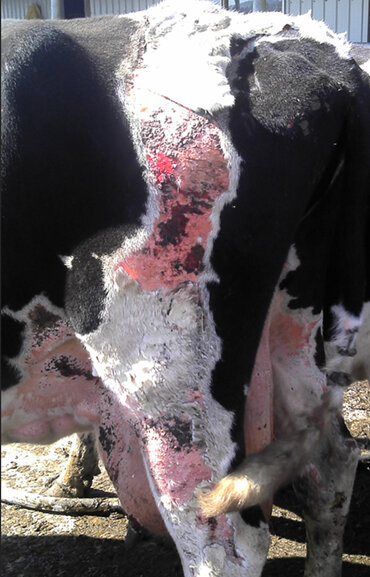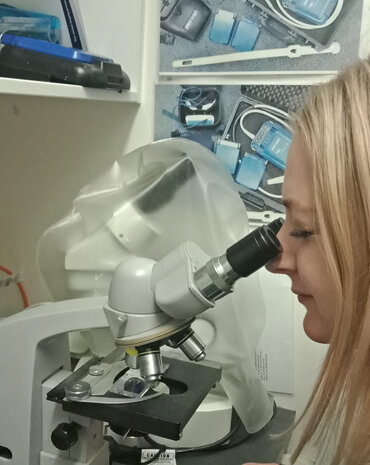Franklin Vets
Franklin Vets - excellence in veterinary care for dairy, farming, lifestyle, equine and household pets. BESTPRACTICE ACCREDITED NZ.

Facial eczema is a disease in cattle (and some other grazing ruminants) caused by a toxin (sporidesmin) produced by the spores of the fungus Pithomyces chartarum growing on pasture.
The fungus typically thrives in warm, humid conditions prevalent in parts of New Zealand typically between January and May each year. The fungus grows in the dead litter at the base of pasture. Therefore hard grazing during danger periods increases the risk of high spore intake.
Sporidesmin, when ingested by cattle, damages the liver and bile ducts.
The damaged liver cannot rid the body of wastes and a breakdown product of chlorophyll builds up in the blood causing sensitivity to sunlight, which in turn causes inflammation and peeling of the skin.
Signs of disease in grazing animals
Not all animals affected with facial eczema show physical signs.
It is estimated that for every clinical case there will be 10 cows with subclinical disease whereby liver damage and production loss occurs but is not easy to detect. Blood tests can be used to monitor the extent of subclinical eczema.
Badly damaged liver tissue will not regenerate. Chronic wasting and/or death may occur at the time of damage or months later when the animal is under stress (e.g. calving).

There is no cure for facial eczema so prevention is the only way of protecting animals. To be effective, preventative measures need to be in place before eczema spores are found.

Speak to the vets if you are interested in any of these tools. ZincCheck – the new Fonterra Bulk Milk test for herd zinc levels. This is a bulk milk test (actually based on 3 tests taken within 5 – 15 days apart) that measures zinc levels.
Studies (2017 and 2020) have been done during the development of this test to correlate bulk milk with herd serum zinc levels. There was an 84% correlation with predicting adequate zinc supplementation to provide protection. The test was also 95% effective at detecting if overdosing/zinc toxicity is occurring.
Further blood testing is an option to confirm abnormal findings if results indicate an issue.
All Fonterra suppliers will be offered one free ZincCheck test this coming eczema season (Autumn 2022); they will also have the option to purchase additional tests. Farmers can opt-in to have their ZincCheck results automatically sent to their nominated veterinary clinic, as veterinarians are able to support farmers to optimise their FE management programme.
I would highly recommend undertaking this test, to confirm your zinc programme is working effectively.